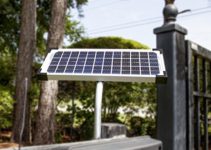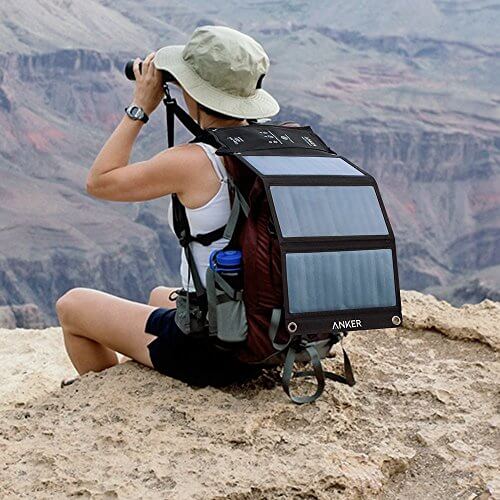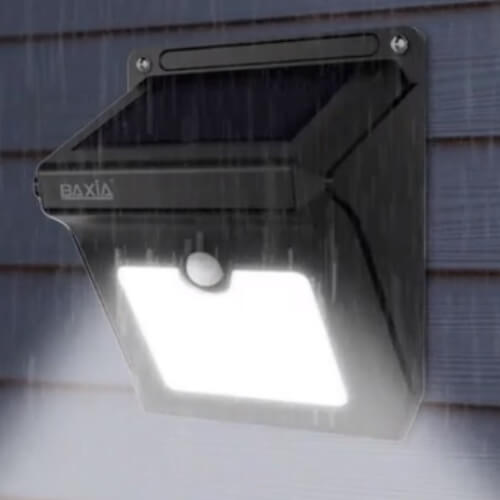 Why are solar panels important?
Why are solar panels important?
The reason solar panels are important is that their energy efficiency, warranty, and cost-saving are all linked as you will see later in the beginner’s solar guide for homeowners…
Look, solar power is a trendy topic these days, and it’s important to get the facts about solar power since this technology is becoming more and more accessible.
Its often used in our daily lives for mobile applications and home lighting. Solar power is the most ideal energy solution for us. Solar power can be used in many different ways, and it is getting more and more popular and available.
The time is coming when all homes will use solar panels for energy.
The benefits of solar panels
Solar panels for home use can serve many purposes, but the best use is generating electricity. Solar panels for home use are a great source of renewable source of electricity. There are a number of reasons to switch from the use of traditional energy to using solar panels for home use. Some of the benefits include:
- Solar panels are a source of renewable energy.
- Solar panels are a great way to reduce your carbon footprint.
- Solar panels are great for the environment.
- Solar panels are a great long-term investment.
- Solar panels are a great way to save money.
- Solar panels are good for the economy.
Watch this short video about the benefits of solar.
The Pros and Cons of Solar Energy
Solar energy is becoming more and more popular in the United States. 60% of people say they would like to install solar panels on their homes, but only 4% actually do it (Source: Solar Energy Industries Association). Why? Well, the upfront cost is high, and installing solar panels can take a lot of time. But there are many benefits that make up for these costs. Let’s look at some of the pros and cons to see if this type of energy might be worth it for you.
The Pros: -Solar panels last twice as long as fossil fuels plants so they save money in maintenance costs over time. They also have no emissions which save the environment from pollution too! -If you’re not using all your electricity, you can sell it back to the grid. In fact, in some areas, you get paid for selling energy back to the grid! -When using solar power at your home or business, you’re supporting a renewable resource that will never run out.
-Solar panels produce no noise and no air pollution which is great if your home or business is located in a residential area.
-Solar panels can be used in remote areas and places that don’t have access to the grid. -After you pay back your initial investment, solar energy is basically free! There are no recurring costs like there would be for electricity from fossil fuels plants. Plus, it’s renewable so it will never run out.
-The more people use solar power, the less dependent we’ll be on fossil fuels which will help slow global warming.
-After a wildfire or hurricane, solar panels can provide a source of energy for those who have lost theirs.
-Solar panels work well in places with a lot of sunlight and not many trees, like the western US.
The Cons: -While the initial investment is expensive, most people report saving money in the long run with solar power because there are no recurring costs like there would be for electricity from fossil fuels plants. Plus, it’s renewable so it will never run out. -Solar panels can’t produce energy at night or on cloudy days which means you need to have some alternative forms of energy set up too. -The upfront cost is usually between $10,000-$30,000 before installation costs. Also, solar panels can take three to four months or more to be installed.
-Some people are wary of the government will tax them on the energy they produce and sell back to the grid. -Solar panels are large and can block sunlight from entering your home or business.
-People who live in certain places might not have access to solar power because their state doesn’t offer tax breaks or incentives for people who switch to solar energy. If you’re interested, check out your state’s policies on renewable energy before deciding if solar will work for you.
Conclusion:
Switching to solar energy is a big decision and it’s important to weigh the pros and cons before deciding if this type of power is right for your home or business. While there are some drawbacks, the pros easily outweigh them! Now that technology has advanced so much, switching to solar energy is a smart choice for people who want to save money and help the environment too.
I hope you found this article informative and helpful! If you’re interested in switching, check out your local hiring services and see if they offer people who want to switch to solar energy. If you’re just curious about what it’s like to use, ask your local leasing company! Thanks again and have a great day!
How to choose the best home solar panels
There are a lot of things to consider when purchasing a solar panel system, including the size of your home, the cost of solar energy, and the amount of sun you get throughout the day. While the upfront cost of a system is an important factor to consider, there is a lot of wasted energy from inefficient systems. In order to make the most efficient use of your solar panels, you need to know about the different systems available.
Go green with solar panels, and feel environmentally responsible.
The most common solar panel installations are integrated, permanent (fixed), and tilting, however the best option for you depends on your home, your electricity need, your budget, and your lifestyle.
1. Panel efficiency?
Solar panels can be a great alternative to electricity generated by fossil fuels, but they don’t work all the time. That’s because the usual way of converting sunlight into electricity is to use photovoltaic cells to generate electricity. The process works well when the sun is shining, but the cells generate less electricity when the sun isn’t shining. The cells act dirty, which means that they absorb infrared light, but don’t give off enough infrared light to complement the energy they absorb.
To know the true efficiency of any solar panels, you have to know how the panels are built. The efficiency of the panels depends on the proportion of light that is emitted from the panels, which is expressed in terms of the “Efficiency Factor”. The efficiency is expressed in Watts per kilogram of solar panel.
Why solar panel efficiency is important: the higher the efficiency, the lower your cost per kWh!
As the price of solar panels continues to drop and as the energy, we generate from solar panels increases, we will need to focus on the efficiency of those panels. It’s important to determine the efficiency of any solar panels we purchase, as it will determine how much energy we will be able to generate.
The importance of solar panel efficiency can’t be understated. Solar panels are still very expensive compared to the cost of electricity from the power grid. So increasing the efficiency of solar panels will directly increase the cost savings of using solar panels.
That said, in recent years panel efficiency has increased for solar panels because they have been designed in a more efficient fashion using new materials. You can be sure that the solar panels being installed today and in the future will have better efficiency than a few years ago.
Solar panels are often sold by their peak power capacity. However, you don’t have to have the biggest panels to generate the most power—there’s a tradeoff between peak power and panel efficiency. For example, a panel with a peak power capacity of 1,000 watts but an efficiency of 24% is more powerful than one with a peak power capacity of 1,500 watts but efficiency of only 18%.
2. Warranty information?
In the current market, a solar panel warranty is considered a basic requirement for every buyer. However, the question is whether a solar panel warranty is indeed a requirement or not. This is because a solar panel warranty does not consider the problem of the actual solar panel. A solar panel warranty does not cover the warranty period of the actual solar panel but is solely based on the solar panel’s nameplate capacity. For example, the solar panel with a 10-year solar panel warranty will only cover the minimum value of the solar panel’s capacity during the warranty period.
On the other hand, some people think that a solar panel warranty is a waste of money. They think that if a solar panel fails, they can simply get a new one. However, that is not the case. If a solar panel fails, the company that made it will not replace it with a new one. The warranty will cover the costs of the broken unit. In other words, the company will pay for the replacements, but if the panel fails after a year or two, it will not be covered by the warranty. Therefore, it is important to get a solar panel warranty.
Look after your solar panels and they’ll look after you.
Understanding different warranty terms of solar panel manufacturers are important for everyone who is interested in saving money on their solar power system. The solar panel warranty or the equipment warranty of your solar power system is the guarantee of the manufacturer that the product is free of defects for a certain period of time. It is important to know if the solar panel warranty terms of your solar panel manufacturer (namely the manufacturer warranty period) are the same as the warranty terms of the solar panel warranty terms of other manufacturers.
In summary, solar panels have a long life and a solar panel warranty is important to ensure you have a covered panel that will perform as expected – and looks good for years to come.
3. Roof type?
Roof type is a solar panel term that describes the surface the solar panels are installed on. The different types are simple to understand. Flat Roofs are the most common and the panels are installed on the ground. A Low Slope Roof has a 1:2 or 1:3 slope and the panels are installed on the roof. The other types include Flat Roofs, Low Slope Roofs, and High Slope Roofs.
Roof type is also important because a solar panel’s type is determined by the maximum temperature at which it can operate without overheating. This temperature is usually around 45 degrees Celsius, and it’s measured in degrees Celsius. While most solar panels operate at solar panel temperatures below 50 degrees Celcius, they can still provide up to 30% of their power output in the summer months.
Your roof type will determine is the solar panels’ installation on your home are integrated, permanent (fixed), or tilting,
Solar panels are no longer an expensive luxury, but an important tool for reducing your carbon footprint. Solar panels work the same, regardless of the type of roof you have, but their cost varies greatly. When deciding on solar panels, consider the type of roof you have, the cost of the solar panels, and the total cost of the panels.
4. Electricity requirements?
For many people, solar panels are the best way to go in the long term when it comes to renewable energy. The reason is that they are one of the few forms of energy that can provide a consistent flow of energy, even when the sun is not shining. But before you install a solar panel, you have to make sure you have the correct electricity requirements.
Look, a solar panel system needs to produce the right amount of electricity for a house under a given climate. If a house is in a climate that has a lot of cloudy days then a solar panel system would need to produce a lot of electricity. If a house is in a climate that has a lot of sunny days then a solar panel system would need to produce less electricity. In order to get an estimate on how much electricity a house would need, a solar installer will use solar output.
Selecting a solar panel is a very important decision. Before you purchase a solar panel, make sure the company you go with is certified and has a proven track record.
5. What are the factors to consider when looking for solar panels?
Solar power has been a hot topic in the news lately, with politicians and experts alike looking to encourage the use of renewable energy. In the past five years, solar panels have been growing in popularity, due to their ease of use and long-term sustainability. But what type of solar panels should you get? And which one is best for you?
In a nutshell, a key factor to consider when looking for solar panels is the type of solar panels you want to use. There are a variety of panels you can choose from, including monocrystalline, polycrystalline, and amorphous panels. Each has different benefits that you should be aware of.
The advantages of monocrystalline and polycrystalline panels include greater efficiency, higher durability, and better tolerance to shading, whereas amorphous panels are cost-effective and offer a wider variety of sizes and colors.
Conclusion
Look, if you want to go solar, ask your neighbors about their experience with different panels. Also, when speaking with an installer they should provide detailed information including expected lifetime, installation costs, any warranties, and, most important, what you’ll pay for electricity during that time. When you’re making your decision, it’s always best to consult with multiple companies on the financial aspects, warranty coverage, and projected energy produced, and your savings.
We all love the sun. It makes our lives better. Its warmth on our faces, its energy for our homes…
When you’re ready to dive deeper, check with SunPower and get the World’s Best Solar installed on Your Home for $0 Down…


